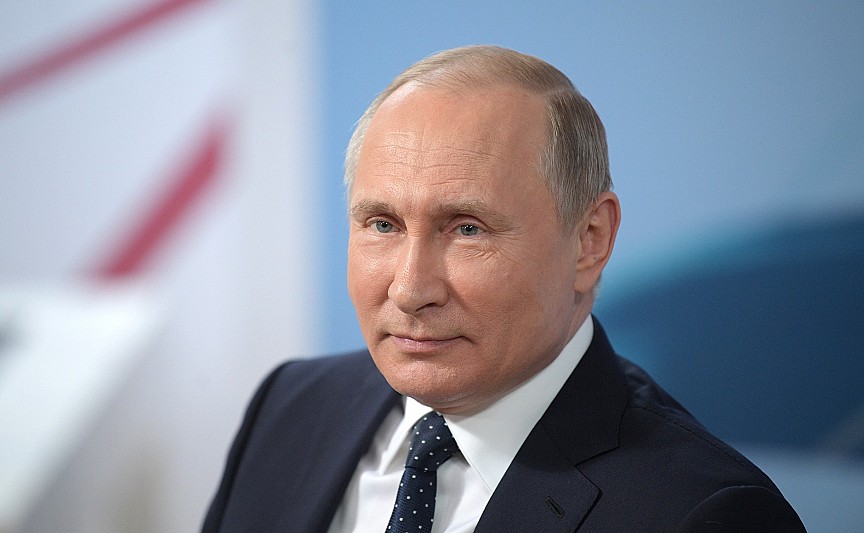Putin Officially Legalized Cryptocurrency Mining in Russia
08.08.2024 17:33 1 min. read Kosta Gushterov
Russian President Vladimir Putin has signed a law that legalizes cryptocurrency mining in Russia.
The new legislation introduces several key concepts, such as digital currency mining, mining pools, mining infrastructure operators, address identifiers, and the individuals who organize mining pool activities. Mining is now recognized as part of economic turnover rather than the issuance of digital currency.
Under the new law, only Russian legal entities and individual entrepreneurs listed in a specific register will be permitted to mine cryptocurrency. However, individuals who stay within government-set energy consumption limits can mine digital currencies without needing to be registered.
The law also allows for the trading of foreign digital financial assets on Russian blockchain platforms. Additionally, the Bank of Russia has the authority to prohibit the placement of certain digital asset issues if they are deemed to pose a risk to the country’s financial stability.
The law will come into effect ten days after its official publication, unless specified otherwise for certain provisions.
-
1
Whale Activity Alert: Which Altcoins Saw Millions Flow Into Exchanges?
09.07.2025 9:00 2 min. read -
2
Bitcoin Rises as Thousands of Altcoins Disappear
07.07.2025 13:00 2 min. read -
3
Binance Launches New Airdrop Rewards for BNB Holders
09.07.2025 18:00 2 min. read -
4
Ethereum nears key resistance as analysts predict $3,500 surge
13.07.2025 20:00 2 min. read -
5
Here is How Ethereum Can Change Wall Street, According to ETH Co-founder
09.07.2025 10:00 2 min. read
Strategy Launches Fourth Preferred stock Offering to Fuel Bitcoin Buys
Strategy Inc. (NASDAQ: MSTR) has announced the launch of its fourth perpetual preferred stock offering, marking a new phase in the company’s ongoing efforts to expand its Bitcoin treasury holdings.
Solana Reclaims $200 as Short Squeeze, ETF hopes, and Institutional Flows Collide
Solana surged 5.6% to reclaim the $200 level for the first time since February, fueled by a confluence of bullish technical, fundamental, and institutional catalysts.
Top trending tokens today: WEMIX, Drift and TRUMP Coin
CoinMarketCap’s momentum algorithm is flashing strong upside signals for several fast-moving tokens. WEMIX, Drift, and OFFICIAL TRUMP Coin top today’s trending list, each driven by unique catalysts—from GameFi upgrades and DeFi volume surges to political tailwinds.
Public Companies Now hold Over $100 Billion in Bitcoin — 4% of Total Supply
According to new data shared by Bitcoin Magazine Pro, publicly traded companies now collectively hold over 844,822 BTC, valued at more than $100.5 billion, marking a historic milestone for institutional Bitcoin adoption.
-
1
Whale Activity Alert: Which Altcoins Saw Millions Flow Into Exchanges?
09.07.2025 9:00 2 min. read -
2
Bitcoin Rises as Thousands of Altcoins Disappear
07.07.2025 13:00 2 min. read -
3
Binance Launches New Airdrop Rewards for BNB Holders
09.07.2025 18:00 2 min. read -
4
Ethereum nears key resistance as analysts predict $3,500 surge
13.07.2025 20:00 2 min. read -
5
Here is How Ethereum Can Change Wall Street, According to ETH Co-founder
09.07.2025 10:00 2 min. read


